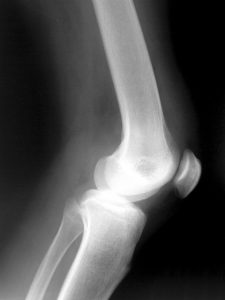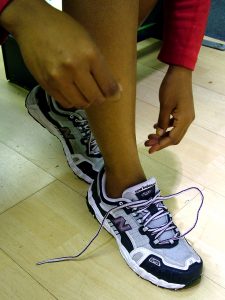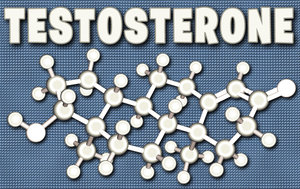 In addition to the recent exciting news about Mark Cuban's research showing that HGH can significantly improve the recovery process from a sports injury, as well as maintain the patient's athletic performance, now we have more good news about human growth hormone (HGH). The good news is in regards to quadriceps strength after the reconstruction of a torn ACL – a serious surgery that can impact a patient's future sports performance forever. A torn ACL is one of the worst diagnoses an athlete will hear in their lifetime. It could mean their career. Thankfully, we have HGH to the rescue!
In addition to the recent exciting news about Mark Cuban's research showing that HGH can significantly improve the recovery process from a sports injury, as well as maintain the patient's athletic performance, now we have more good news about human growth hormone (HGH). The good news is in regards to quadriceps strength after the reconstruction of a torn ACL – a serious surgery that can impact a patient's future sports performance forever. A torn ACL is one of the worst diagnoses an athlete will hear in their lifetime. It could mean their career. Thankfully, we have HGH to the rescue!
Video Link: https://vimeo.com/434880753
Video Download: Click Here To Download Video
Video Stream: Click Here To Stream Video
Typically, even when reconstruction of the anterior cruciate ligament (ACL) goes perfectly throughout surgery and recovery therapy, most athletes see a reduced athletic performance and weakened leg muscles, including the knee and quadriceps. For whatever reason, these muscles seem permanently hindered and unable to regain their strength, let alone surpass it.
HGH and its Effects After ACL Reconstruction
An associate scientist at Hospital for Special Surgery, Christopher Mendias, Ph.D., conducted a study with his colleagues on 19 men who were scheduled to undergo ACL reconstruction surgery. His team randomly assigned these men injections of either a placebo (9 men total) or human growth hormone (10 men total) to be used two times a day starting the week before surgery and five weeks post-surgery.
 Throughout the six months post-surgery, Mendias' team measured knee muscle volume (size) and strength, patient self-reports, and certain biomarkers.
Throughout the six months post-surgery, Mendias' team measured knee muscle volume (size) and strength, patient self-reports, and certain biomarkers.
The group of ten men who had the HGH injections demonstrated a 2.1-fold increase in IGF-1 levels in the bloodstream throughout the treatment period. They also showed a 29% increase in normalized peak isokinetic knee extension torque (a measurement of force that could be interpreted as “muscle strength” since the strength and force exerted by the quadriceps, or any other muscle attached to the knee, is partly determined by the torque of the knee) when compared to the nine men in the placebo group.
HGH May Reduce the Risk of Osteoarthritis
One of the biomarkers measured was an enzyme called matrix metalloproteinase-3 (MMP-3) that is associated with and used as a marker of cartilage deterioration. There was a 36% lower incidence of MMP-3 seen in the HGH injection group when compared to the placebo. Cartilage is an incredibly important structural component of our knees, as well as other parts of our bodies. Once degraded, it really can never grow back.
 Dr. Mendias believes that HGH is potentially valuable in improving strength after major surgery, including ACL reconstruction surgery, and may also prevent the onset of osteoarthritis. He also states that these effects of HGH can also be applicable to other joint injuries or fractures where the patient is immobilized for a long time period. Throughout the extensive recovery period, HGH injections could be utilized to help patients get back on their feet both quicker and stronger, making human growth hormone valuable as a recovery tool and not just a performance-enhancing drug (PED) as many people believe is the case these days.
Dr. Mendias believes that HGH is potentially valuable in improving strength after major surgery, including ACL reconstruction surgery, and may also prevent the onset of osteoarthritis. He also states that these effects of HGH can also be applicable to other joint injuries or fractures where the patient is immobilized for a long time period. Throughout the extensive recovery period, HGH injections could be utilized to help patients get back on their feet both quicker and stronger, making human growth hormone valuable as a recovery tool and not just a performance-enhancing drug (PED) as many people believe is the case these days.
Keep following our health blog to stay up-to-date on the latest hormone news, including testosterone and human growth hormone. We focus on men's health and how HRT can be useful in improving men's lives as they age and hormonal imbalance becomes more of a reality. Do not hesitate to reach out to us to discuss any questions or concerns you may have about your own hormonal health!
References
Contact Us Today For A Free Consultation

- Cano's spokeswoman was client of Biogenesis [Last Updated On: January 25th, 2024] [Originally Added On: May 4th, 2013]
- Documents: Cano associate was client of clinic [Last Updated On: January 25th, 2024] [Originally Added On: May 4th, 2013]
- Sources: Cano associate was Biogenesis client [Last Updated On: January 25th, 2024] [Originally Added On: May 4th, 2013]
- Early Stage Testicular Cancer - Surveillance Is Best Follow-Up Strategy [Last Updated On: January 25th, 2024] [Originally Added On: May 18th, 2013]
- 2013 Endocrine Function Testing Market in Europe: Hospitals, Commercial Labs, Physician Offices, Ambulatory Care Centers [Last Updated On: January 25th, 2024] [Originally Added On: June 14th, 2013]
- Europe Endocrine Function Testing Market Studied by VPG in Cutting-Edge Report Now Available at MarketPublishers.com [Last Updated On: January 25th, 2024] [Originally Added On: June 18th, 2013]
- A More 'Natural' Version Of IVF Proves A Success [Last Updated On: January 25th, 2024] [Originally Added On: June 19th, 2013]
- Weight Loss Cure with Metabolic Cookbook - Video [Last Updated On: January 25th, 2024] [Originally Added On: July 12th, 2013]
- Weight Loss Drops - Are They A Scam? - Video [Last Updated On: January 25th, 2024] [Originally Added On: July 12th, 2013]
- Abbott Features Solutions to Help Labs Prepare for the Evolving Healthcare Landscape at the American Association for ... [Last Updated On: January 25th, 2024] [Originally Added On: July 30th, 2013]
- How Testicular Cancer Is Diagnosed | Testicular Cancer - Video [Last Updated On: January 25th, 2024] [Originally Added On: August 11th, 2013]
- 2014 Opportunities in the US Clinical Chemistry and Immunodiagnostics Markets [Last Updated On: January 25th, 2024] [Originally Added On: September 27th, 2013]
- Serie A - Doping ban overturned on cancer sufferer Acerbi [Last Updated On: January 25th, 2024] [Originally Added On: January 8th, 2014]
- Health Highlights: Jan. 8, 2014 [Last Updated On: January 25th, 2024] [Originally Added On: January 8th, 2014]
- Testosterone Replacement Therapy [Last Updated On: December 9th, 2023] [Originally Added On: January 19th, 2014]
- Paid Hepatitis C Clinical Trial Now Enrolling at Avail Clinical Research near Orlando, Florida; Accepting M/F Patients ... [Last Updated On: January 25th, 2024] [Originally Added On: January 22nd, 2014]
- Luteal Phase: The Uterine Lining Phase - Video [Last Updated On: January 25th, 2024] [Originally Added On: April 10th, 2014]
- Doping case against Acerbi dismissed [Last Updated On: January 25th, 2024] [Originally Added On: April 15th, 2014]
- Drugs that Cause Gynecomastia [Last Updated On: January 25th, 2024] [Originally Added On: May 14th, 2014]
- Illegal Online Meds Targeted in Worldwide Crackdown, FDA Says [Last Updated On: January 25th, 2024] [Originally Added On: May 24th, 2014]
- Biogenesis' Bosch surrenders in PEDs case [Last Updated On: January 25th, 2024] [Originally Added On: August 5th, 2014]
- Duchess of Cambridge 'hugely disappointed' after being forced to pull out of yet another engagement due to morning ... [Last Updated On: January 25th, 2024] [Originally Added On: October 1st, 2014]
- Kate, Duchess of Cambridge dazzles in baby blue gown at the Natural History Museum [Last Updated On: January 25th, 2024] [Originally Added On: October 22nd, 2014]
- 'They're poisoning us'. How religious leaders are hindering vaccination programmes across the world [Last Updated On: January 25th, 2024] [Originally Added On: November 14th, 2014]
- Poor prognosis germ-cell tumours are only cured in about half of patients. We aimed to assess whether treatment ... [Last Updated On: January 25th, 2024] [Originally Added On: November 23rd, 2014]
- Nursing a Grudge [Last Updated On: January 25th, 2024] [Originally Added On: January 22nd, 2015]
- Hormone Levels in Men - Testosterone Injections [Last Updated On: November 30th, 2021] [Originally Added On: September 9th, 2016]
- Six Ways to Feel Good and Balance Your Hormones at the Same Time! [Last Updated On: January 25th, 2024] [Originally Added On: September 24th, 2020]
- Your Birthplace Heavily Influences Your Future Testosterone Levels [Last Updated On: August 19th, 2024] [Originally Added On: March 6th, 2021]
- Both High and Low Levels of Testosterone Correlate With Cardiovascular Issues in Men [Last Updated On: September 27th, 2024] [Originally Added On: April 14th, 2021]
- Breaking News: Testosterone May Be the Answer to Autoimmune Diseases [Last Updated On: August 24th, 2024] [Originally Added On: May 14th, 2021]
- Non-Stop Cravings for Protein? Blame it on Your Gut Hormones! [Last Updated On: September 13th, 2024] [Originally Added On: May 21st, 2021]
- Testosterone Therapy Could Help Quell Your Asthma Attacks [Last Updated On: September 12th, 2024] [Originally Added On: June 20th, 2021]
- BPA Here, BPA There, What’s the Reason for the Scare? [Last Updated On: September 16th, 2024] [Originally Added On: June 29th, 2021]
- Low Testosterone Linked to Depression and Suicidal Ideation [Last Updated On: August 25th, 2024] [Originally Added On: July 5th, 2021]
- It’s True: Men Today Have Less Testosterone Compared to Men a Generation Ago [Last Updated On: September 19th, 2024] [Originally Added On: July 13th, 2021]
- Losing Weight with Baratric Surgery Reverses Low Testosterone [Last Updated On: October 2nd, 2024] [Originally Added On: February 8th, 2022]
- Do Larger Testicles Make More Testosterone? [Last Updated On: July 24th, 2024] [Originally Added On: May 3rd, 2022]
- Fact or Myth: Have Testosterone Levels Really Dropped by 50% Just in the Past Two Decades? [Last Updated On: August 14th, 2024] [Originally Added On: June 4th, 2022]
- Another Analysis Shows No Cardiovascular Risks With Testosterone Therapy [Last Updated On: October 6th, 2024] [Originally Added On: November 27th, 2022]
Word Count: 592


















